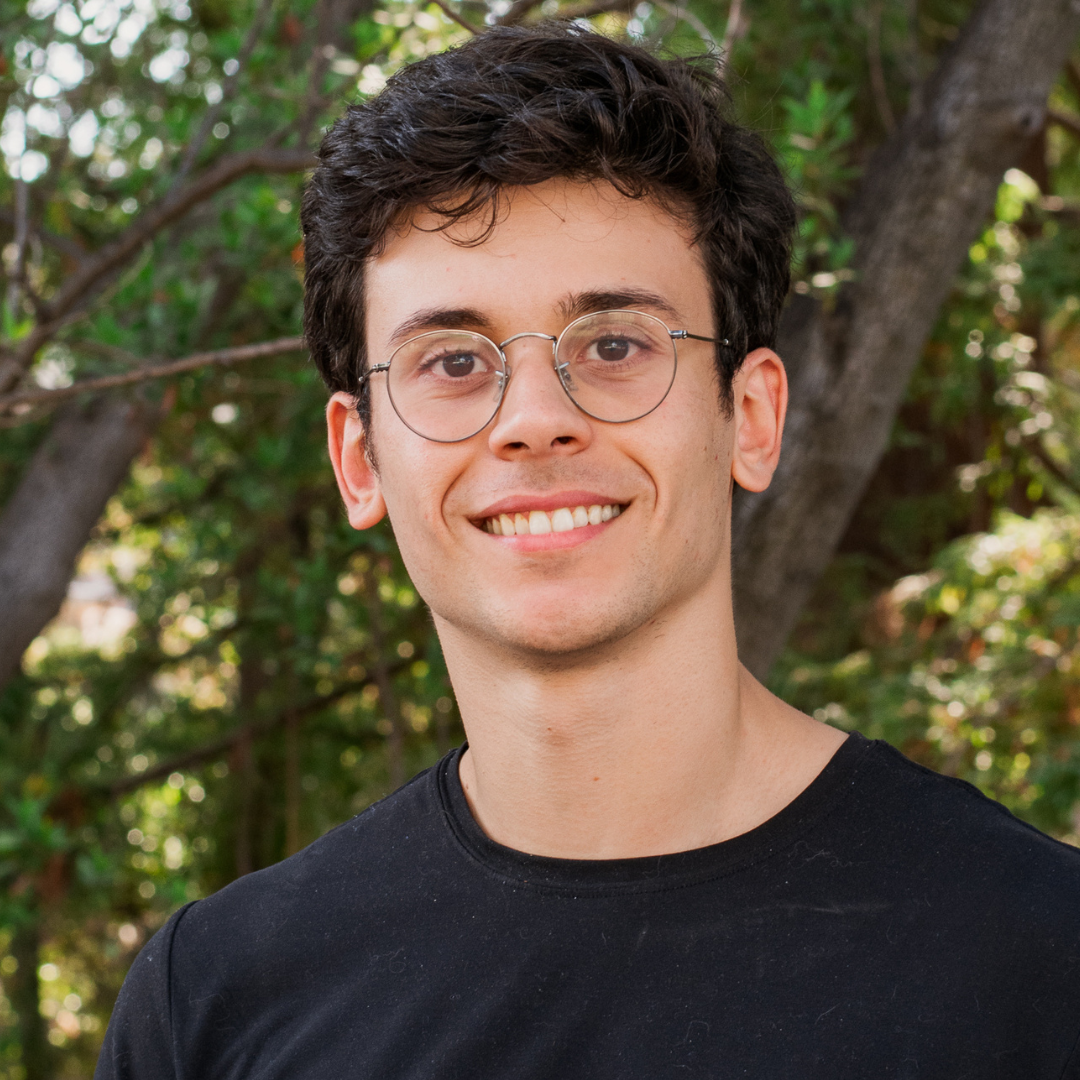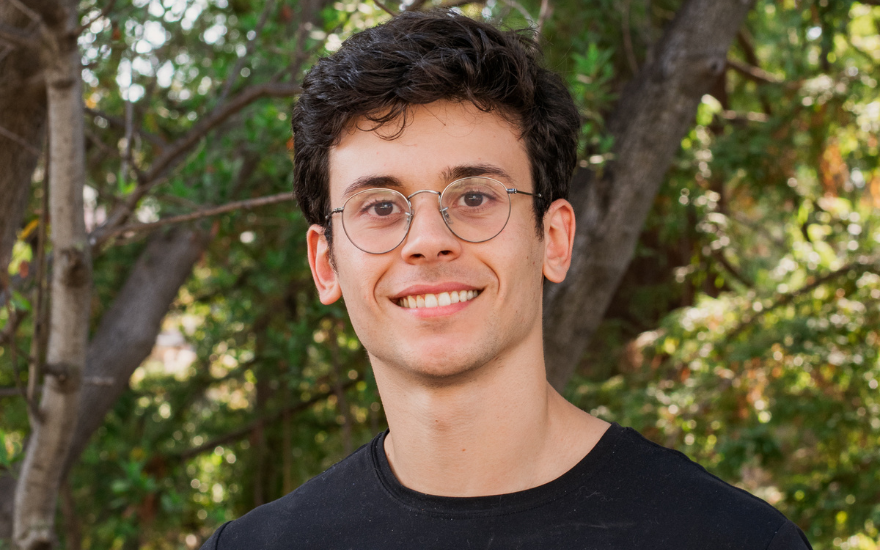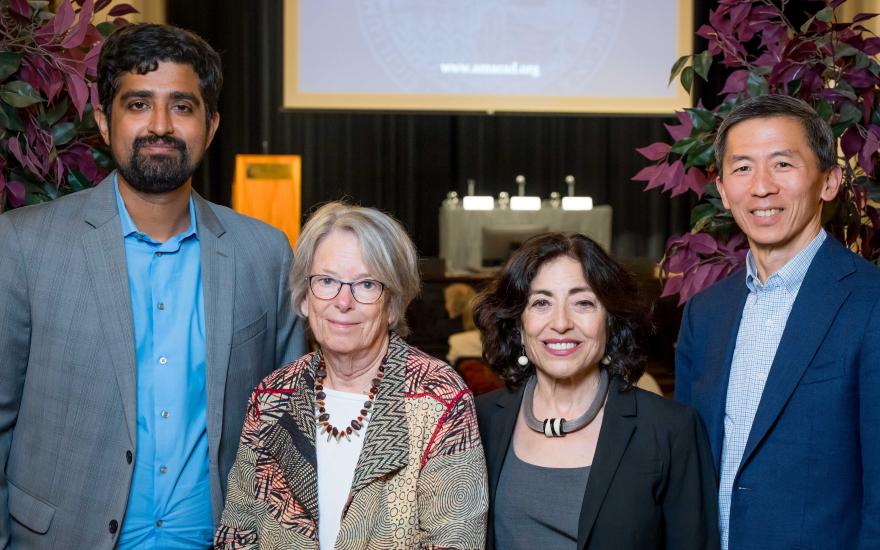Adam Yala made an excited call from Sweden to his PhD advisor at MIT when he first saw the study results in September 2019. Their research group’s artificial intelligence model for detecting patients at risk of breast cancer from mammogram images – developed and tested in Boston – had worked consistently on Swedish patient data, without any adjustments. When the same thing happened months later in Taiwan, Yala knew they had achieved something remarkable: a breast cancer prediction algorithm that could work anywhere in the world – something that previous predictive tools had not yet accomplished.
“When it started working out of the box in very different places, that was super exciting,” recalled Yala, now an assistant professor at the UCSF UC Berkeley Joint Program in Computational Precision Health.
That memorable moment led to Mirai, a breast cancer prediction model that can predict breast cancer from a single mammogram. Mirai has now been validated on over 1.9 million mammograms across 21 countries and has recently entered clinical trials. Yala now wants to expand beyond breast cancer. With more than 2 million people in the United States projected to receive a cancer diagnosis this year, Yala is also working on adapting his use of computer vision and machine learning to provide earlier detection for many types of cancer.
Predictive algorithms using medical imaging data
Yala's path to medical AI began as an undergraduate student at MIT. His first project seemed simple: analyzing hospital records to understand cancer outcomes. But he quickly realized that even basic questions about patient data were extremely difficult to answer with existing tools. Yala built a natural language processing system to help do that work.
“That little success got our foot in the door,” he said. “And the deeper I got into the space, I just felt so much unmet need.”
While cancer involves collecting an abundance of data from imaging, pathology and other tests, Yala noticed that data is rarely used beyond what the patient and doctor needed that day. He wanted to better mine the available data to improve care and decided to start with mammograms for breast cancer screening.
By analyzing thousands of mammograms, Yala was able to get the Mirai algorithm to do what radiologists alone cannot: detect cancer risk before any visible sign appears in mammograms. This capability allows doctors to identify high-risk patients from a single scan who need additional screening – sometimes five years before they develop cancer – while avoiding unnecessary follow-up for lower-risk cases. Unlike standard breast cancer prediction tools developed using limited data from well-resourced academic medical centers, Mirai works equally well across different ethnicities – including for Black women who face a higher risk of mortality from breast cancer.
Today, Yala's team is leading a randomized clinical trial in collaboration with UCSF radiologist Maggie Chung to evaluate how Mirai can improve cancer outcomes. The trial has enrolled 77 patients thus far through the University of Massachusetts and is expanding to three additional hospitals around the country. The trial is testing whether giving immediate MRIs to patients flagged as high-risk by the algorithm leads to earlier cancer detection.
Yala and colleagues will test whether they can catch more cancers than the current standard of care. “We have baseline numbers in the literature,” he said. “We're trying to beat them by a factor of two.” In addition, they're piloting same-day diagnostic workups for suspicious mammograms identified by Mirai, eliminating the anxiety-inducing weeks of waiting for results that patients typically face.
Broadening the use of algorithms for cancer prediction
Yala is also broadening his research by applying the same algorithmic approach to other types of cancer. “I care a lot about breast cancer. It's where I started since it's a huge contributor to human suffering,” he said. “But it's not the only one.”
He now works on lung, prostate, pancreas, blood and other cancers. One success beyond Mirai has been Sybil, an AI system Yala developed that can predict lung cancer risk up to six years in advance from routine CT scans.
To Yala, the Computational Precision Health program is a great place to help address big problems. “I love working with students that are really smart. I have collaborators that are phenomenal. I have really great mentors,” he said. “I think all of that, if I was outside of the university ecosystem, would be so much harder to find.” Another plus is that when he isn’t teaching, Yala can duck away from campus for climbing sessions in Tahoe, Bishop and Yosemite. The freedom allows him to fully optimize his work.
And his approach is working. His research has received national media attention, and his breast and lung cancer papers have been featured in “top paper” compilations for the journal in the year they are published, signifying professional interest in his work. For Yala, however, academic accolades aren't the goal. “I care about whether my grandma would understand why this is important,” he said. “Are you helping people who don't know what AI is? That's the bar.”
Looking ahead, Yala is determined to bridge the gap between AI advances and seeing them used in hospitals. “There's a bunch of challenges that result from that last mile,” he said. He’s considering ways for the technology to stand up to FDA approval and how it can sustain itself financially in order to reach the most people.
“There's more to grow and more to learn,” Yala said. “I definitely feel like there’s no taking our foot off the gas pedal until the technology benefits the public.”





